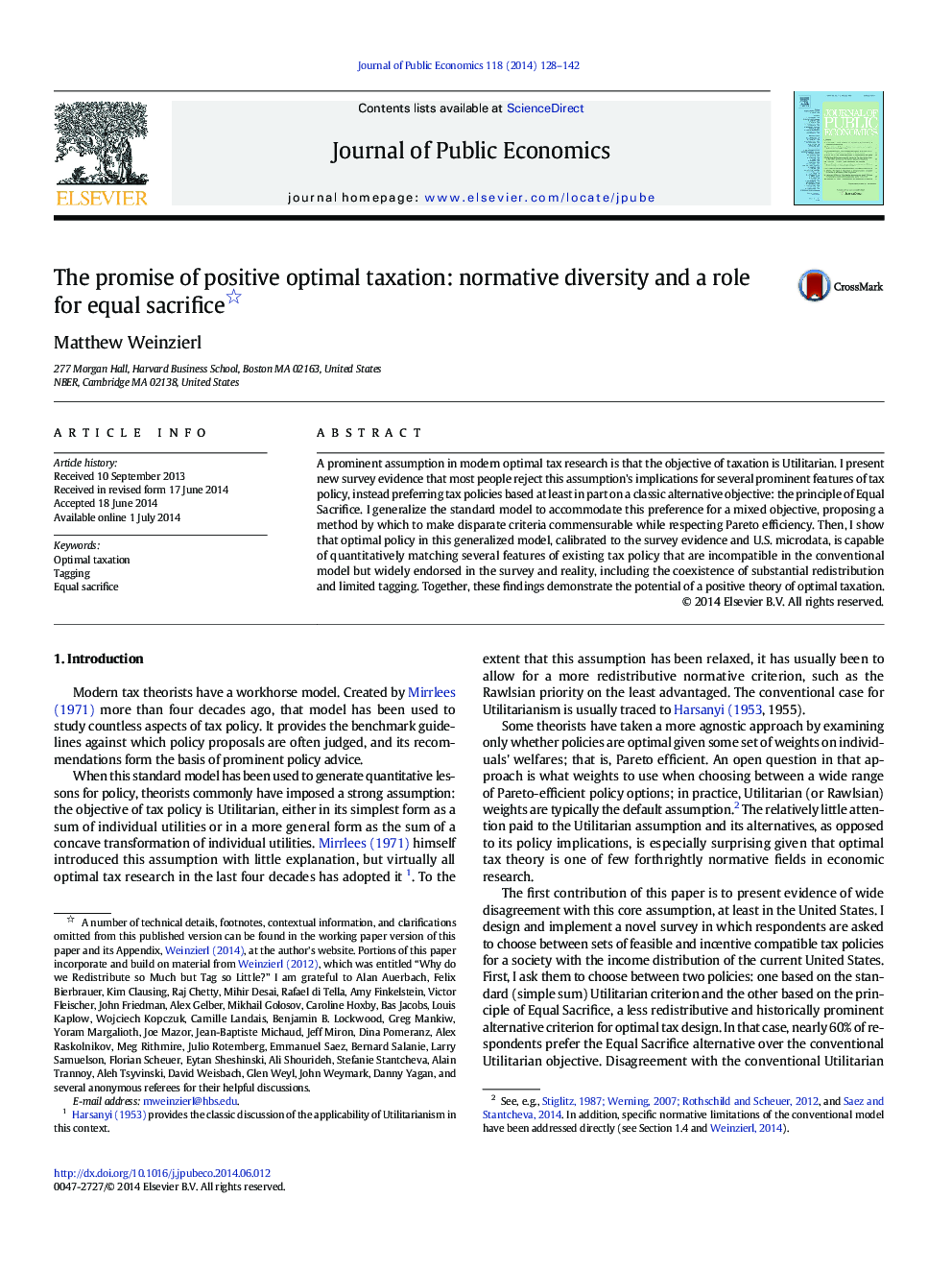| Article ID | Journal | Published Year | Pages | File Type |
|---|---|---|---|---|
| 7370245 | Journal of Public Economics | 2014 | 15 Pages |
Abstract
A prominent assumption in modern optimal tax research is that the objective of taxation is Utilitarian. I present new survey evidence that most people reject this assumption's implications for several prominent features of tax policy, instead preferring tax policies based at least in part on a classic alternative objective: the principle of Equal Sacrifice. I generalize the standard model to accommodate this preference for a mixed objective, proposing a method by which to make disparate criteria commensurable while respecting Pareto efficiency. Then, I show that optimal policy in this generalized model, calibrated to the survey evidence and U.S. microdata, is capable of quantitatively matching several features of existing tax policy that are incompatible in the conventional model but widely endorsed in the survey and reality, including the coexistence of substantial redistribution and limited tagging. Together, these findings demonstrate the potential of a positive theory of optimal taxation.
Related Topics
Social Sciences and Humanities
Economics, Econometrics and Finance
Economics and Econometrics
Authors
Matthew Weinzierl,
